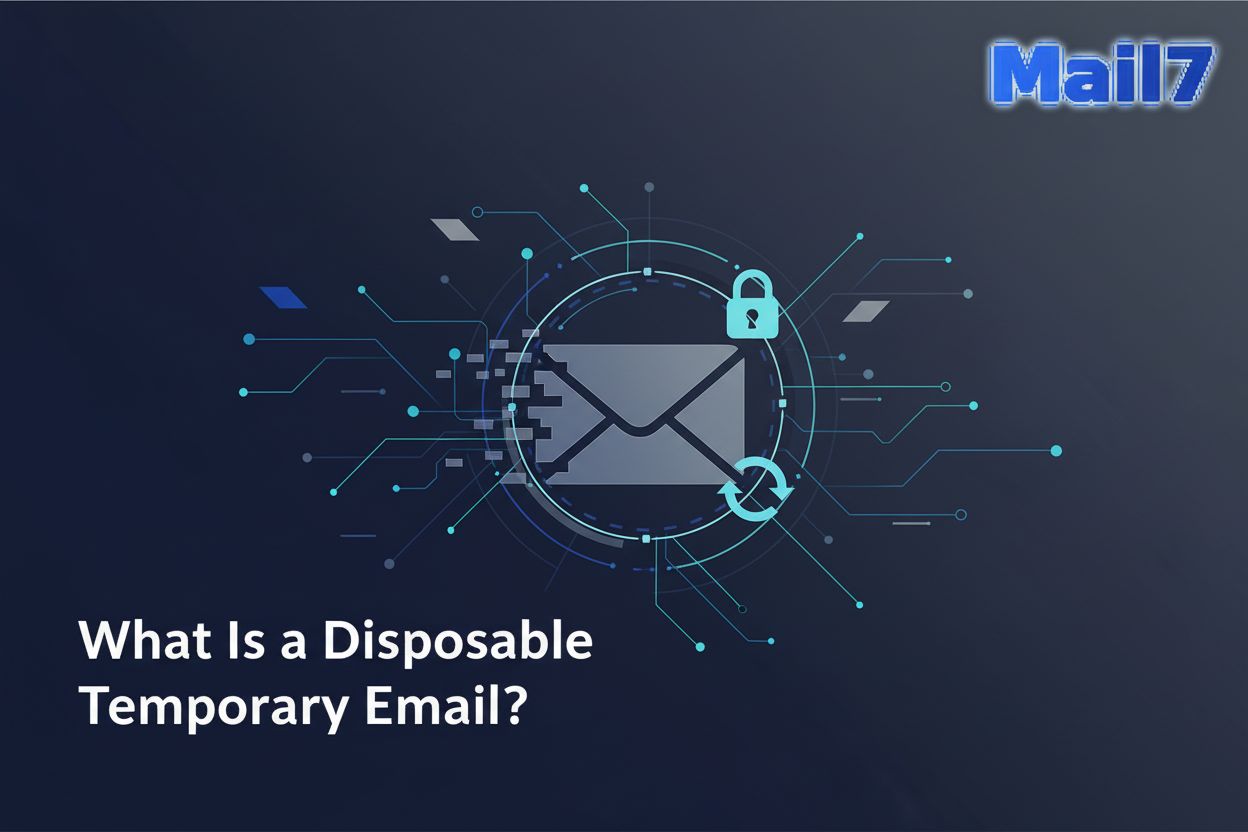Effective strategies for using disposable emails on flagged sites
TL;DR
Why Legitimacy Matters for Email Service Providers
Ever get that feeling something's just...off? Yeah, that's how you wanna feel about a dodgy email service provider (ESP) before you hand over your data. Turns out, picking a legit ESP isn't just a nice-to-have, it's crucial for, well, everything.
Think of it this way: your email campaigns are investments. But with a shady ESP, you're basically throwing money into a digital bonfire.
- First off, fraud and data breaches are huge risks with shady ESPs. These guys might not have proper security, leaving your and your subscribers' data vulnerable. Imagine a hacker getting their hands on customer financial info from your retail client's email list. Not good, right?
- Then there's the lost investment part. You spend time and money crafting these amazing emails, only for them to never reach the inbox because the ESP has a terrible reputation. Or worse, they just take your money and run.
- And don't forget the hidden fees. Some of these less-than-reputable ESPs lure you in with low prices, then hit you with unexpected charges for things like list cleaning or extra emails. It's like that rental car that seemed cheap until you saw the final bill.
Your brand is everything, right? So, associating with a sketchy ESP is like showing up to a black-tie event in flip-flops.
- You risk getting associated with spam. If the ESP doesn't have strict anti-spam policies, your emails could end up in junk folders, or worse, get you blacklisted. No one wants to be that company.
- Then there's the loss of customer trust. If subscribers start getting spammy emails or their data gets compromised because of your ESP, they're gonna lose faith in your brand. And regaining that trust? It's a tough climb.
- Ultimately, it just damages your brand image. Customers might see you as unprofessional or, even worse, unethical. In the finance world, can you imagine the fallout of a data breach linked to a dodgy ESP? Bye-bye credibility.
This is where things get really serious. Ignoring data privacy laws isn’t just bad business—it's illegal!
- It's all about GDPR, CCPA, and other regulations (CCPA vs GDPR: Infographic & 10 Differences You Need To Know). These laws are designed to protect people's data, and if your ESP isn't compliant, you're in trouble. Think hefty fines and legal battles.
- Speaking of which, there's the risk of fines and legal actions. Violating these regulations can cost you a fortune (The Cost of Non-compliance - Top Fines, Penalties, and Settlements ...), not to mention the damage to your reputation. No ceo wants to explain that one to the shareholders.
- It all boils down to data privacy and security. You need to make sure your ESP has the right measures in place to protect sensitive information. It's not just about avoiding fines; it's about doing the right thing.
So, yeah, legitimacy matters. Choosing the right ESP is a big deal, and it's worth doing your homework. Building on this, let's look at how you can actually spot a dodgy ESP before it's too late.
Key Indicators of a Legitimate Email Service Provider
Okay, so you're trying to figure out if an Email Service Provider is on the up-and-up, huh? Smart move! It's kinda like dating - you wanna spot the red flags before you're in too deep.
First thing's first: security. Does the ESP take it seriously? I mean really seriously?
- Look for SSL/TLS encryption like it's the holy grail. This makes sure your data is scrambled when it's traveling between you and them. Think of it as sending secret messages that only you and the ESP can read. If they don't have this, run.
- Two-factor authentication (2FA) should be a no-brainer. It’s like having a bouncer at the door of your account. Requires not only a password but also a code from your phone. It’s surprising how many places still don't have this.
- SOC 2, ISO 27001, and other security certifications are what you should look for. These aren't just fancy acronyms; they mean a third-party has checked the ESP's security and said, "Yep, these guys are doing it right." SOC 2, for example, focuses on how service organizations manage customer data, ensuring it's secure and available. ISO 27001 is an international standard for information security management systems, meaning they have a robust framework for protecting sensitive data.
Next up: Can they actually get your emails into inboxes? 'Cause what's the point if your carefully crafted message ends up in the spam folder, never to be seen?
- You want high inbox placement rates. Ask the ESP about this directly. They should be able to give you some solid numbers. If they're vague or can't provide data? Sketchy.
- A positive sender reputation and IP address is also vital. An ESP's reputation is like a credit score for email sending. Bad reputation = emails go to spam. You can check an IP address reputation using online tools like MXToolbox or SenderScore; some ESPs might even offer this info upfront.
- Compliance with email authentication protocols (SPF, DKIM, DMARC) is a must. These are like digital signatures that prove your emails are legit. If they aren't using these, email providers might think your emails are spam and block them.
And then there's the money. Are they upfront about costs, or are they trying to pull a fast one?
- They need to have a clear and upfront pricing structure. No one likes surprises on their bill. Make sure you understand exactly what you're paying for.
- Watch out for hidden fees or unexpected charges. Some ESPs will lure you in with a low price, then charge you extra for things like list cleaning or exceeding your email limit. It's like those "free" trials that automatically charge you after a week.
- Read the terms of service! I know, it's boring, but it's important. Look for anything that seems unfair or unreasonable. For example, what happens to your data if you cancel your account?
Finally, what are other people saying about them?
- Look for positive reviews on reputable review platforms. Check out sites like G2 or Trustpilot. Don't just look at the star rating – read the reviews and see what people are saying.
- Case studies and testimonials from real customers can be helpful. These can give you a sense of how the ESP works in practice. But, you know, take them with a grain of salt – companies usually only show the good stuff.
- Be wary of fake or manipulated reviews. If all the reviews sound the same or are overly enthusiastic, that's a red flag.
So, yeah, do your homework. It might take a little time, but it's worth it to find an ESP that you can trust. Now that we've covered how to spot a legitimate provider, let's look at some of the shady tactics these dodgy ESPs use to try and trick you.
Red Flags: Warning Signs of an Illegitimate ESP
Ever get that feeling that something's just not on the level? When choosing an email service provider, trust that feeling - especially if you spot these red flags. Dodgy ESPs are out there, and they're getting sneakier.
If it sounds too good to be true, it probably is. These unrealistic promises are a huge red flag. We're talking guarantees of crazy-high deliverability rates, like 99.9%, without even looking at your email list or authentication setup.
- Guaranteed high deliverability rates without proper authentication? Come on, that's just not how it works. Deliverability depends on so many factors – your sender reputation, list quality, email content, and authentication (SPF, DKIM, DMARC). No ESP can guarantee perfect deliverability without you doing your part.
- Unreasonably low pricing compared to industry standards is also a warning. Running a reliable ESP costs money – servers, support, compliance, and security. If an ESP is offering prices that are way lower than everyone else, they're probably cutting corners somewhere... and that somewhere could be your data security.
- And then there are the promises of instant success and high roi. Email marketing takes time and effort. Building a good list, crafting engaging emails, testing different strategies – it's a process. Any esp promising you instant riches is probably selling snake oil.
A legitimate ESP is going to be upfront about who they are and how to reach them. If they’re hiding, that's a problem.
Missing or incomplete contact details is a big no-no. A real company has a physical address, a phone number, and a support email that actually works. If all you can find is a generic contact form, be wary.
Vague or misleading information about the company should also raise an eyebrow. Who are the people behind the ESP? What's their experience? If the "about us" page is full of buzzwords but short on specifics, that's not a good sign.
Difficulty in reaching customer support is another red flag. You should be able to get in touch with someone if you have a question or problem. If support is slow, unresponsive, or just plain unhelpful, it's time to look elsewhere.
This diagram shows how poor customer support, a major red flag, can lead to customer frustration and ultimately, a damaged reputation for the ESP.
This is where things get really serious. If an ESP is engaging in these practices, run, don't walk.
- Sending unsolicited emails (spam) is a cardinal sin. A legitimate ESP will have a strict anti-spam policy and will only send emails to people who have explicitly opted in. If they're sending emails to purchased lists or using other shady tactics to trick you into sending spam, they're not to be trusted.
- Selling or sharing email lists is another huge red flag. Your email list is your most valuable asset. A reputable ESP will never sell or share it with anyone else. If they do, they're violating your trust and potentially breaking the law.
- Lack of compliance with data privacy regulations (like gdpr and ccpa) is unacceptable. These regulations are designed to protect people's data, and any esp that isn't compliant is putting you at risk. Make sure the esp has clear policies on data privacy and security, and that they're transparent about how they collect, use, and store data.
Spotting these red flags early can save you a lot of headaches down the road. Don't be afraid to ask tough questions and do your research.
To further understand this, we'll explore the steps you can take to verify an email service provider's legitimacy.
Steps to Verify an Email Service Provider's Legitimacy
Alright, so you've narrowed down your ESP choices, but you're still not 100% sure? Time to put on your detective hat – let's get verifying!
First things first: dig into their background. I mean really dig.
- Check the company's background and history. Don't just take their word for it. See how long they been around? A longer track record usually means they're more stable. Use sites like Crunchbase or LinkedIn to investigate the company's leadership, investors, and overall trajectory. If they've hopped between a bunch of different names or have a history of lawsuits? Red flag city.
- Verify their certifications and compliance status. This is especially important if you're dealing with sensitive data. Look for certifications like SOC 2 or ISO 27001; mentioned earlier, these show they've been vetted by a third party. For example, if you're in healthcare, make sure they're HIPAA compliant. Same goes for gdpr if you have european customers.
- Look for independent reviews and ratings. What are other people saying about them outside of their website? Check out sites like G2 or Trustpilot, but don't just look at the stars; read the actual reviews. Pay attention to recurring themes – are people consistently complaining about the same issue?
Okay, paper research is done. Now it's time to kick the tires!
- Sign up for a free trial or demo account. Most ESPs offer some sort of trial period – use it! This gives you a chance to poke around the platform and see if it's a good fit for your needs. Don't be afraid to really put it through its paces.
- Test the platform's features and functionality. Does it do what you need it to do? Are the features easy to use? Do they integrate with your other tools? For example, if you're an e-commerce business, test the integration with your e-commerce platform. If you need advanced segmentation, see how well the platform handles it.
- Monitor deliverability rates and performance. Send some test emails to a variety of email addresses (Gmail, Yahoo, Outlook, etc.) and see where they end up. Are they going to the inbox or the spam folder? Check your sender reputation using online tools to see if the esp's ip addresses are blacklisted.
Finally, put their customer support to the test. This is a big one...
- Evaluate the responsiveness and helpfulness of customer support. How quickly do they respond to your inquiries? Are they knowledgeable and helpful, or are they just reading from a script? Try contacting them through different channels (email, phone, chat) to see how they perform across the board.
- Ask specific questions about security, deliverability, and compliance. Don't be afraid to grill them. Ask about their security protocols, their anti-spam policies, and their compliance with data privacy regulations. A legitimate ESP should be able to answer these questions clearly and confidently.
- Assess their knowledge and expertise. Do they seem like they know what they're talking about? Can they explain complex concepts in a way that you understand? If they're evasive or can't answer your questions, that's a red flag.
By taking these steps, you can significantly reduce your risk of getting scammed by a dodgy ESP. It takes a little effort, but it's worth it to protect your data and your reputation.
Now that we've covered how to verify an ESP's legitimacy, let's wrap things up.
Conclusion: Making an Informed Decision
So, you've made it this far – congrats! That means you're serious about picking an email service provider that isn't gonna land you in hot water. But the journey doesn't end with the initial choice; it's more like planting a tree than buying a toaster.
- First, prioritize security, deliverability, and compliance. No matter how shiny the features are, if your esp isn't rock-solid on these three, walk away. Think of it like this: security is the foundation, deliverability is the plumbing, and compliance is the electrical wiring.
- Evaluate pricing and terms of service carefully. I can't stress this enough – read the fine print! Hidden fees and sneaky clauses can turn a seemingly good deal into a financial nightmare.
- And finally, consider customer reviews and testimonials. What are real users saying? Are they happy with the service and support? A chorus of complaints is a major red flag.
Email marketing isn't a "set it and forget it" kinda thing, you know? You need to keep an eye on things.
- Regularly monitor your email performance. Are your emails landing in inboxes or spam folders? What's your open rate and click-through rate? Keep track of these metrics to ensure your esp is delivering the goods.
- Stay updated on industry best practices. Email marketing is constantly evolving, so it's important to stay informed about the latest trends and techniques. Otherwise, you'll be stuck in 2010 while everyone else is using ai-powered personalization – which, by the way, uses artificial intelligence to tailor content, offers, and send times to individual subscribers for a more engaging experience.
- Be vigilant for any signs of illegitimate activity. Keep an eye out for anything that seems suspicious, like sudden drops in deliverability or complaints from subscribers. Trust your gut; if something feels off, investigate.
Choosing a legitimate esp is a big decision, but it's an investment in your business's success. Do your homework, stay vigilant, and you'll be well on your way to building a thriving email marketing program.





